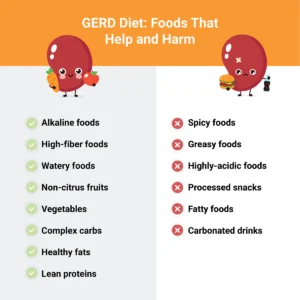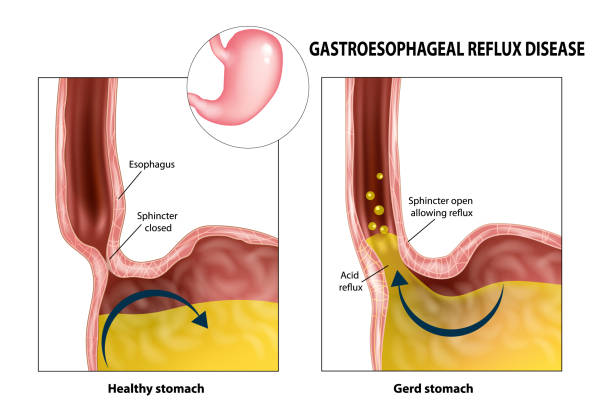Gastroesophageal reflux disease (GERD) is a digestive condition that affects both adults and children. It occurs when stomach acid flows back into the esophagus due to a weakened sphincter, causing irritation and discomfort. 
Certain factors can worsen GERD, such as overeating, eating late at night, or consuming trigger foods like spicy dishes, fried foods, caffeine, citrus fruits, and chocolate.
On the other hand, many foods and habits can ease symptoms. High-fiber choices like oatmeal, vegetables, and whole grains prevent overeating and reduce pressure on the stomach. Watery foods such as cucumber, lettuce, and watermelon dilute acid, while alkaline foods like bananas and melons help neutralize acidity. Non-fat dairy and yogurt soothe the stomach lining, and ginger’s anti-inflammatory properties calm irritation.
 Lifestyle changes also play an important role in managing GERD:
Lifestyle changes also play an important role in managing GERD:
-
Eat smaller, more frequent meals.
-
Avoid lying down immediately after eating.
-
Wear loose-fitting clothes around the stomach.
-
Maintain a healthy weight.
-
Identify and avoid personal trigger foods.
-
Adopt long-term healthy eating and lifestyle habits.

